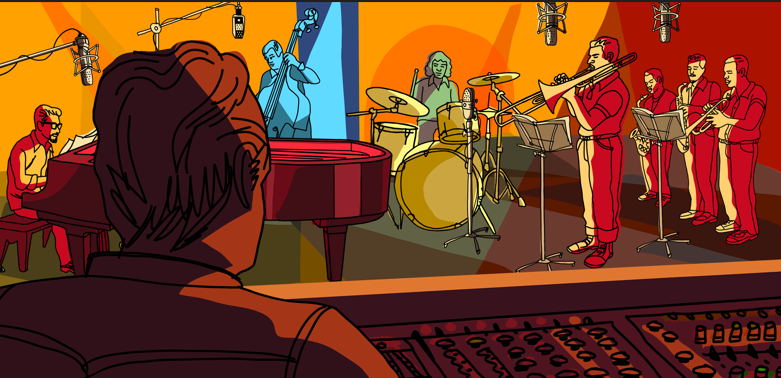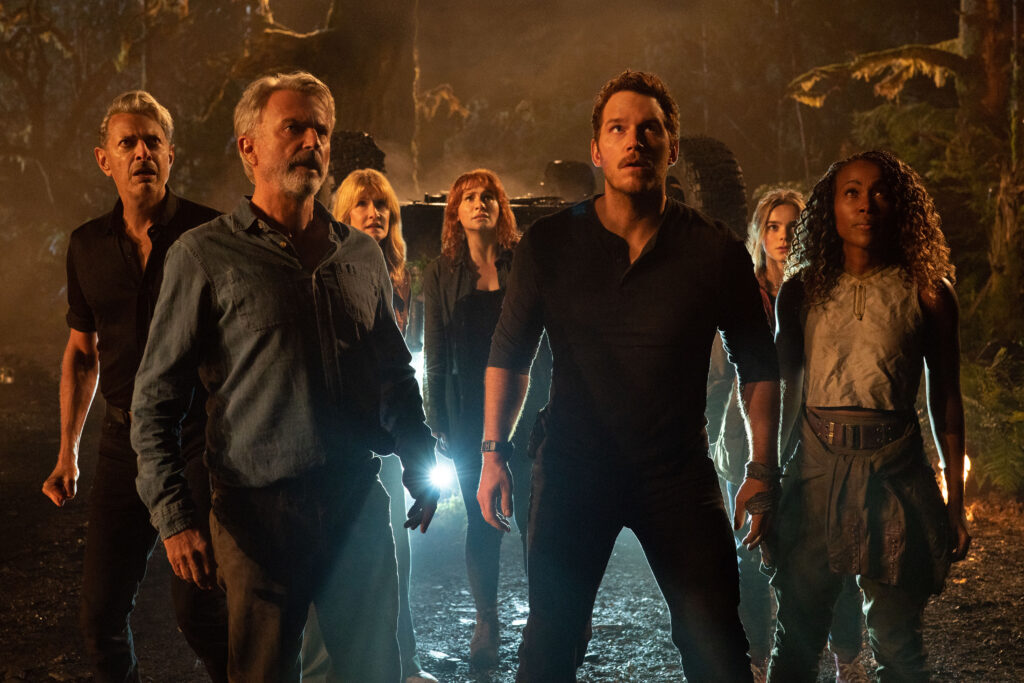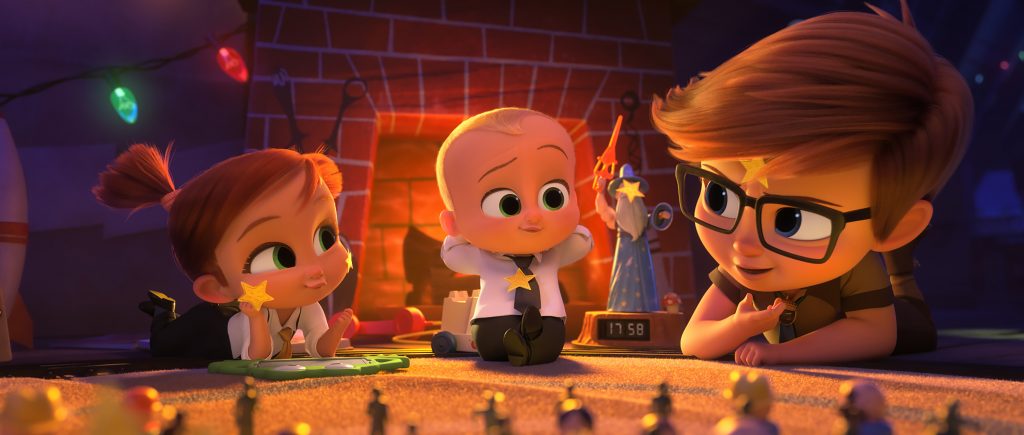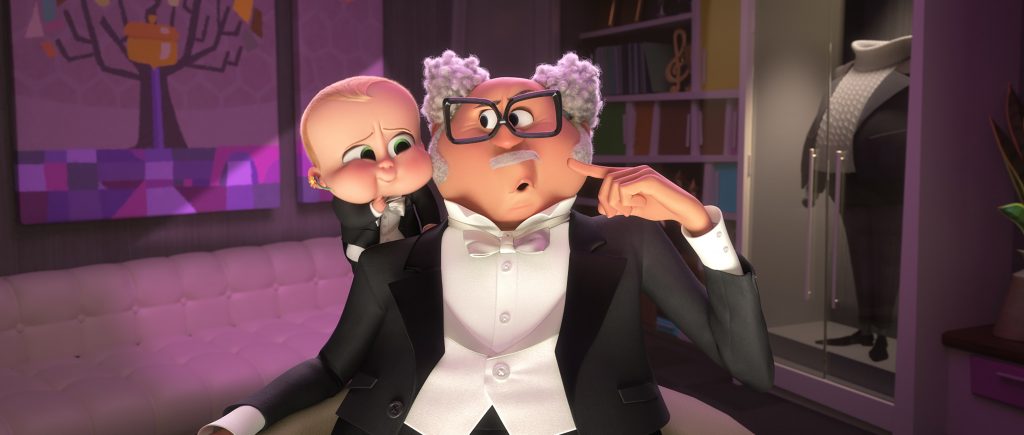March 14, 2024
by Carla Hay

Directed by Fernando Trueba and Javier Mariscal
Some language in Portuguese and Spanish with subtitles
Culture Representation: Taking place in the 2000s (with re-enacted flashbacks to the 1960s and 1970s), the animated docudrama film “They Shot the Piano Player” features a predominantly Latin cast of characters (with a few white people and African Americans) representing the working-class and middle-class.
Culture Clash: American music journalist Jeff Harris (a fictional stand-in for “They Shot the Piano Player” director Fernando Trueba), investigates the mysterious 1976 disappearance of Brazilian piano player Tenório Jr., who was an highly respected musician in the Bossa Nova musical movement.
Culture Audience: “They Shot the Piano Player” will appeal primarily to people who are interested in watching unusual documentaries about Brazilian music or true crime cases.

“They Shot the Piano Player” mostly succeeds in its intention to be an unconventional documentary, but much of the story gets bogged down in repetitiveness. Overall, this animated film is watchable for people interested in Brazilian music or true crime. It’s a hybrid of a fictional narrator telling a true story, with audio recordings of real interviews featured in the documentary.
Directed by Fernando Trueba and Javier Mariscal, “They Shot the Piano Player” was written by Trueba. After screening as a work in progress at the 2023 Annecy International Animation Film Festival, “They Shot the Piano Player” had its world premiere at the 2023 Telluride Film Festival. The movie then made the rounds at several other film festivals in 2023, including the Toronto International Film Festival and the BFI London Film Festival.
In the production notes for “They Shot the Piano Player,” Trueba (who is a Spanish filmmaker) says that sometime around 2019, he discovered the talent of Brazilian pianist Tenório Jr. while listening to a Brazilian album from the 1960s. Trueba became fascinated with finding out more about Tenório after discovering that Tenório (whose full name was Franciso Tenório Jr.) had vanished while on tour in Argentina in 1976, when Tenório was 35. Trueba went to Brazil and Argentina to interview family members, friends and associates of Tenório to try to solve the mystery of what happened to Tenório. Many of the resulting interviews are featured in “They Shot the Piano Player.”
“They Shot the Piano Player” creates a fictional narrative around these real interviews. In the movie, which takes place in the 2000s, the person doing the interviewing is a fictional New York City-based journalist named Jeff Harris (voiced by Jeff Goldblum), whose quest to find out the truth begins when he writes an article in The New Yorker about Bossa Nova, the music genre that combines Brazilian music and jazz. Bossa Nova, which originated in Brazil in the late 1950s, flourished in Brazil and in other countries.
As a result of this article in The New Yorker, Jeff gets a book publishing deal to write a nonfiction book about the history of Bossa Nova. While listening to a 1960s Brazilian Bossa Nova album, Jeff discovers Tenório Jr. when he hears a piano solo on the album. Jeff is intrigued to find out that Tenório Jr. hasn’t been featured on any musical recordings in more than 30 years. Jeff (who only speaks English) wants to know why, so he travels to Brazil to interview people. Jeff is sometimes accompanied by his Brazilian friend João (a fictional character, voiced by Tony Ramos), who is a tour guide/language interprerter of sorts during these trips.
Through a series of interviews, Jeff finds out that in 1976, Tenório disappeared in the Argentinian capital of Buenos Aires, during a tour as a band member with singer Vinicius de Moraes and guitarist/singer Toquinho. Jeff then becomes obsessed with solving the mystery of what happened to Tenório, so he travels back and forth between Brazil and Argentina to get answers. (It’s not that much of a mystery, since the title of the movie says it all.) Tenório’s disappearance happened around the same time of the 1976 coup d’état that ousted Isabel Perón as president of Argentina, so it’s not much of a surprise that this political turmoil (and the thousands of innocent people who were victims of it) are part of this story.
Most people who knew Tenório tell Jeff that it was widely believed that Tenório was murdered in Buenos Aires in 1976. But who murdered him and why? Those questions are answered by some people who are interviewed in the movie and an archival interview that Jeff hears. The interviews also reveal what type of person Tenório was by the surviving people who knew him best. Jeff also visits several of the places where Tenório used to go, such as recording studios and nightclubs.
Jeff’s book editor Jessica (a fictional character, voiced by Roberta Wallach) sees how enthusiastic Jeff has become about solving the mystery, so she tells Jeff that instead of writing a book about the history of Bossa Nova, he should instead write a book about what happened to Tenório Jr. “They Shot the Piano Player” actually begins in 2009, after the book is published, and Jeff is doing a book reading at The Strand bookstore in New York City. The rest of the movie is a flashback to Jeff tellng the story about his journey in writing the book.
Through stories and descriptions from interviews, a portrait of Tenório emerges as a highly respected and talented musician who was passionate about music, who didn’t really care about becoming rich and famous, and who had a messy personal life. At the time of his disappearance, married man Tenório had a mistress and a pregnant wife, who was expecting their fifth child. His mistress Malena Barretto (who is interviewed in the movie) was staying with Tenório at a hotel in Buenos Aires on the night of Tenório’s disappearance. She had been feeling sick at the time, so he left the hotel to find a pharmacy to get some medicine for her. That was the last time she saw him.
“They Shot the Piano Player” is packed with several interesting interviews, but after a while, many of them say the same things over and over about how talented and sweet-natured Tenório was. The movie could have used better editing in reducing some of this repetitiveness. There are also some extraneous scenes that look like nothing but travelogue footage.
Most of the people interviewed are musicians who knew Tenório, such as Toquinho, Chico Buarque, Gilberto Gil, Ben Shank, Caeton Veloso, Milton Nascimento, Jorge “Negro” Gonzales, Ian Muniz, João Donato, Laércio de Freitas, Raymundo Bittencourt, music producer Roberto Menescal and sound engineer Umberto Candardi. Family members interviewed include Tenório’s widow Carmen Magalhäes, his sister Vitoria Tenório and his uncle Manuel Tenório.
Also interviewed are several of Tenório Jr.’s friends in the Rio de Janeiro’s arts community, including Alberto Campana, the owner of Bottle’s Bar and Little, the nightclub where Tenório Jr. got his first big break; poet Ferrreira Gullar, who says that a psychic named Mrs. Haydée told Tenório Jr.’s father that Tenório Jr. was murdered; and family members and associates of de Moraes, such as his ex-wife Marta Santamaría, ex-brother-in-law Carlos Santamaría and friend Elena Goñio. Experts who weigh in with interview include Agrentina’s National Memory Archive coordinator Judith Said, human rights lawyer Luiz Eduardo, filmmaker/university professor Rogério Lima and journalists John Rowles, Nano Herrar and Horatio Verbitsky.
The animation is eye-catching and looks like painting art come to life. However, some people might not like the animation style that’s in this movie. The scenes where Jeff is visiting nightclubs to watch performances are enjoyable. And his investigation will keep viewers interested. It’s especially impactful when Jeff finds out what reportedly happened on the last day of Tenório’s life.
There are pros and cons to Goldblum’s constant narration in this movie. On the one hand, he gives a very good voice performance that remains engaging throughout the film. On the other hand, Goldblum has such a distinctive and famous voice, a lot of vewers might find his celebrity voice distracting. You never forget that you’re listening to Goldblum, which makes it harder to believe the narration is from a character named Jeff Harris.
Despite these narrative flaws, “They Shot the Piano Player” is a very good history lesson about Bossa Nova and about a fairly obscure and underrated Bossa Nova musician. The movie also tells a tragic story of someone who died simply because of being in the wrong place at the wrong time. “They Shot the Piano Player” doesn’t make any statements about all the political turmoil in South America, but it tells a compelling human story about someone affected by this turmoil who left an influential legacy in Brazilian music.
Sony Pictures Classics released “They Shot the Piano Player” in select U.S. cinemas on November 24, 2023, with a wider release in U.S. cinemas on February 23, 2024.







